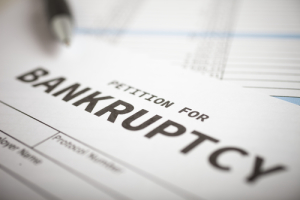The most common type of bankruptcy filed by individuals is Chapter 7 bankruptcy. Chapter 7 is known as the “fresh start”, or “liquidation bankruptcy”.
Approximately 60% of the cases our firm files are chapter 7 bankruptcy cases. The biggest advantage of chapter 7 bankruptcy is that it is over so quick with a majority of Chapter 7 cases open for only 90 days from filing to discharge. A chapter 7 bankruptcy will eliminate most of the common debts, such as credit card, medical, utilities, collections, and repossession deficiencies.
Once a Chapter 7 bankruptcy is filed the “automatic stay” goes into place. This stops all collections in it’s tracks. All creditors must stop all efforts to collect the debt including phone calls, letters, garnishments, etc. Therefore, the automatic stay is an extremely valuable tool for people who find themselves in overwhelming debt.
Although chapter 7 bankruptcy is known as a “liquidation bankruptcy” it is fairly rare for debtors to lose property or assets during the bankruptcy process. Most people who file will have sufficient exemptions (protections) that cover all of their assets. This means that they can go through a chapter 7 bankruptcy and not lose any money, property, or assets. If any assets are at risk, an experienced bankruptcy attorney can properly advise the debtor on what they may be able to do before the bankruptcy is filed to lessen the impact/risk of assets being lost. This is referred to as pre-bankruptcy planning. This can be a very complicated process and you will want an experienced attorney who knows bankruptcy law, and local practices to advise you on what you can and can’t do prior to filing a bankruptcy to avoid major problems.
Not all individuals will qualify to file a chapter 7 bankruptcy. If a debtor earns too much money they may be required to file a chapter 13 bankruptcy. After 2005, Congress passed laws that require all debtors seeking to file chapter 7 to pass what is called a “means test”. This formula will determine whether you are eligible to file chapter 7, or if you will be required to file chapter 13 based on your income and standardized livings expenses. Only debtors whose gross income is above the median income for their state will be subject to this means test. The means test is a complex formula and an experienced, local attorney should be able to get some information from you to determine whether you are eligible for Chapter 7 relief based on your income.

